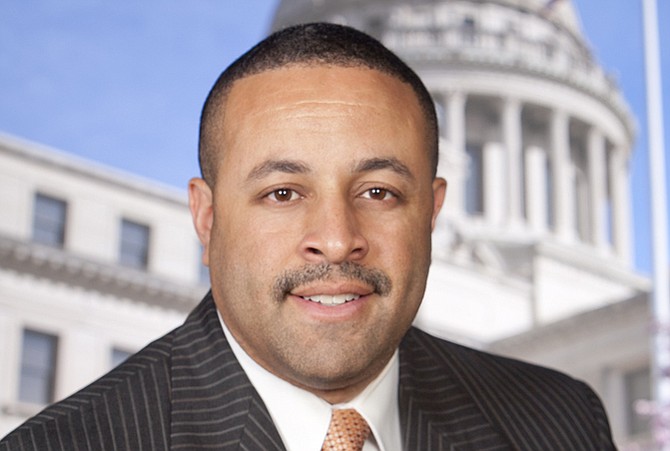State Rep. Chuck Espy, D-Clarksdale, plans to introduce legislation in the 2015 session to require that police officers wear body cameras while on duty.
Several Mississippi officials are looking at ways to increase police accountability in the wake of deadly encounters between police and unarmed men nationwide.
In the capital city, the Jackson Police Department will provide basic Spanish lessons to officers through a Camden-based group called Bilingual Works.
"We have a large number of Hispanics in the area now and, from my impression, that number's only going to grow," JPD Chief Lee Vance told WAPT Thursday.
Jackson State University professors will teach the courses, which will count as continuing-education credits for officers. Law enforcement agencies have struggled with policing the Jackson area's immigrant community.
In 2012, JPD acquired electronic hand translators with a federal grant, which Vance said remain in use. In December 2013, a task force formed with U.S. Marshals and members of the Mississippi State Highway Patrol, Jackson Police Department and the Hinds County Sheriff's Office led a raid on the home of a woman named Rosi Lopez, an American citizen who had Spanish-speaking immigrant relatives staying at her home in Jackson. Immigrant-rights advocates said the raid was indicative of lack of cross-cultural training that can result in tragedy.
Improving training and increasing police accountability have formed a central thread through national debates around such deaths as Michael Brown in Ferguson, Mo., and Eric Garner in New York City.
In light of those tragedies, which sparked national protests, a Mississippi legislator has followed suit with President Barack Obama's proposal to require that police officers wear body cameras while on duty.
State Rep. Chuck Espy, D-Clarksdale, said he would introduce the legislation in the 2015 session. "Given recent national events over the past year, including Ferguson, Mo., and New York, the public has increasingly lost confidence in our policing and judicial systems," Espy said in a media release.
"The level of trust between local police and the communities they protect will determine the strength of that relationship."
Officer Darren Wilson shot and killed Brown after stopping him for walking in the street. On Nov. 24, a grand jury declined to indict Wilson on any charges.
While Brown's story is not an isolated incident, the grief in the Ferguson community sparked a national movement. Brown's parents spoke out and asked for police departments across the country to adopt body camera policies.
Digital video recordings could provide proof of events that might have otherwise been muddied by conflicting testimony and reports, such as in Brown's case. The cameras can also create a record of time and dates, which "helps authenticate incidents and log an automatic evidence file," the statement reads.
The New York Times reported that the Rialto, Calif., Police Department experienced an 88 percent decrease in complaints against officers and a 60 percent decrease in incidents in which officers used force after adopting body camera policies.
Espy believes he can gather bipartisan support for the initiative. Some are questioning how helpful video footage will be in determining how justified officers' actions are, considering a grand jury's decision Wednesday not to indict New York Police Department officer Daniel Pantaleo, who put Eric Garner in the chokehold that ended Garner's life.
That incident was caught entirely on video. Garner was unarmed and non-violent.



Comments
Use the comment form below to begin a discussion about this content.